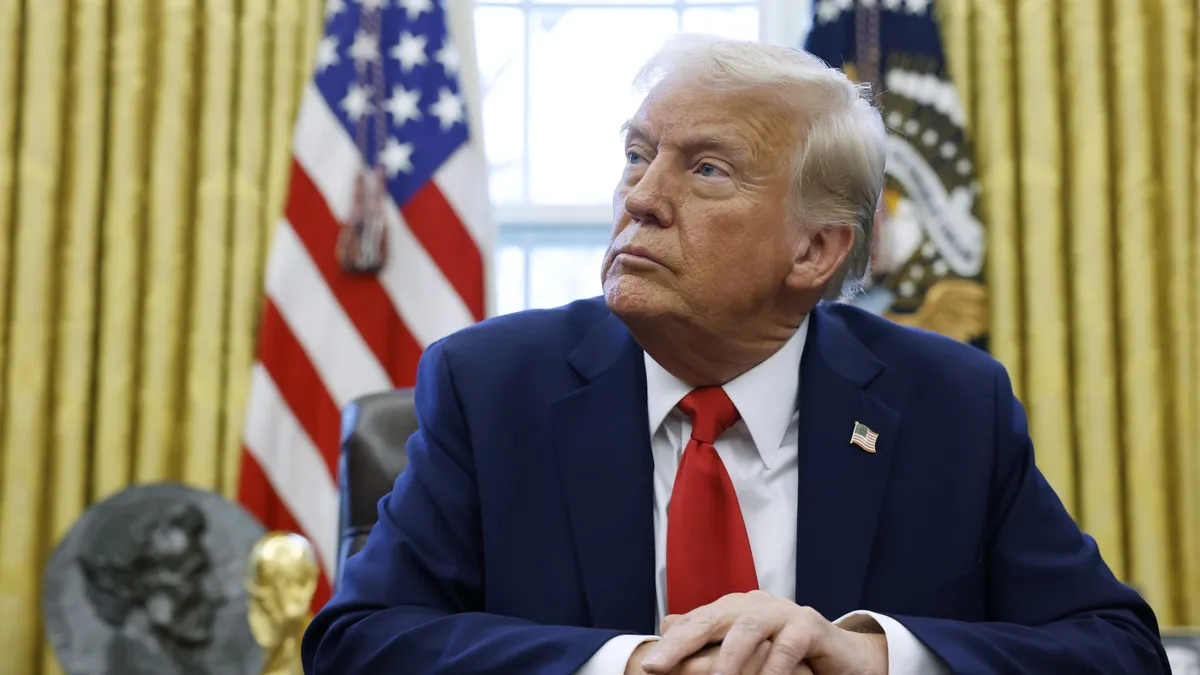
On Wednesday, President Donald Trump signed a series of executive actions targeting both higher education institutions and K-12 schools across the United States. These actions aim to reshape educational standards and policies, reflecting Trump's commitment to his conservative agenda in education.
One of the significant executive orders directs Education Secretary Linda McMahon to revamp the college accreditation system. Accreditation is a crucial process that colleges must undergo to qualify for federal financial aid, ensuring that educational programs meet acceptable quality standards. Trump has previously labeled accreditation as his "secret weapon" in combating what he views as ideological bias within higher education.
This executive action seeks to hold colleges accountable for what is perceived as ideological overreach and aims to foster greater intellectual diversity on campuses. By encouraging the recognition of new accrediting bodies, the order intends to introduce more competition into the accreditation process, thereby enhancing accountability and quality in higher education.
Another significant aspect of the executive actions is a warning regarding the disclosure of foreign funding to universities. The new order stipulates that federal grants could be revoked if institutions fail to provide timely and complete disclosures of foreign financial support. This measure responds to concerns that certain prestigious universities, such as Harvard, have not adequately complied with existing laws requiring the disclosure of foreign gifts or contracts exceeding $250,000.
The order emphasizes the need for greater transparency regarding foreign funding and aims to ensure that American taxpayers are informed about the financial relationships between universities and foreign entities.
In addition to reforms in higher education, Trump’s executive actions also target K-12 schools. The new guidance seeks to establish discipline policies based on objective behavior rather than Diversity, Equity, and Inclusion (DEI) standards. This initiative aims to overturn previous policies enacted during the administrations of Presidents Joe Biden and Barack Obama, which were designed to reduce racial disparities in school discipline, such as suspensions and expulsions.
By revoking these earlier guidelines, the executive action calls for a return to discipline practices that focus on behavior rather than race, thereby promoting a more uniform approach to student discipline across schools.
Education Secretary Linda McMahon expressed optimism about the potential of these executive orders to foster critical innovations within the education sector. She highlighted the importance of inviting more competition into the higher education accreditation system, ensuring greater transparency in college finances, and supporting the integration of new technologies in classrooms. These measures are geared towards enhancing the quality and effectiveness of education in America.
President Trump's recent executive actions represent a significant shift in the educational landscape of the United States, with a clear focus on promoting conservative educational values. By reforming college accreditation, enforcing transparency in foreign funding, and revising K-12 discipline policies, these initiatives aim to reshape the education system to align with the administration's vision for the future.